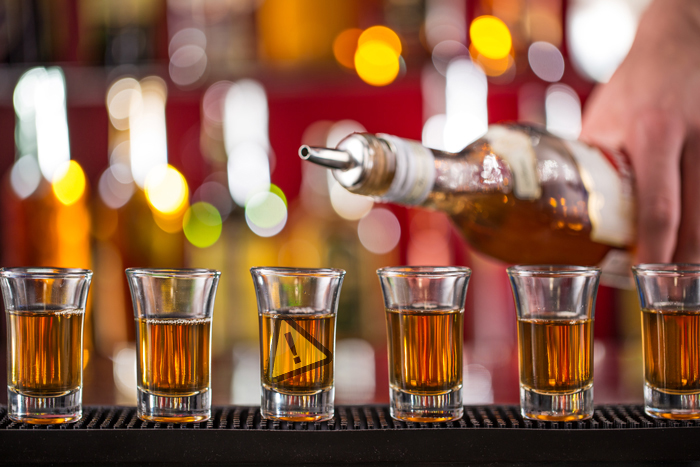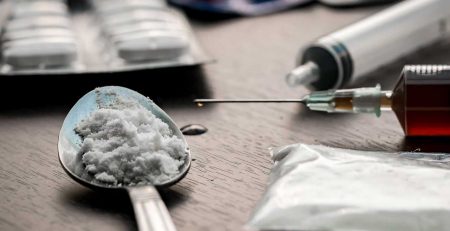Drinking alcohol affects various parts of your body, including your kidneys. While a drink or two every once in a while, may not be detrimental to your health, chronic and heavy drinking can greatly impact your physical health. While many are familiar with the effects of drinking on the liver, today we’re answering an equally important question: how does alcohol affect the kidneys?
How Do the Kidneys Work?
The kidneys are a pair of bean-shaped organs located on either side of your spine below your ribs and behind your belly. Each of your kidneys is about 4 to 5 inches long. The role of our kidneys is to filter blood, remove waste, balance our body’s fluids, and ensure that all our electrolytes are at the appropriate levels.
All our blood passes through our kidneys about 40 times a day to be filtered. During this process, blood goes into the kidneys where waste gets removed, and salt, water, and other minerals are regulated as needed. The filtered blood then goes back into the body. Any waste that’s removed from the blood in the kidneys is then turned into urine.
Your kidneys are important because they remove waste and extra fluid from your body, they remove acid that’s produced by the cells of your body, and they maintain a healthy balance of water, salts, and minerals like calcium and sodium in your blood. Your kidneys also create hormones that help control your blood pressure, produce red blood cells, and promote bone health.
If your kidneys fail completely, your body fills with extra water and waste products, and your blood floods with extra minerals and acids. This condition is referred to as uremia, which could cause swelling in the hands or feet as well as fatigue and weakness. Untreated kidney failure or uremia can lead to seizures or coma and may even result in death, so it’s important to seek medical attention if you experience any unusual symptoms.
Get a Free Insurance Verification Today!
"*" indicates required fields
How Does Drinking Affect Your Kidneys?
According to the National Institute on Alcohol Abuse and Alcoholism, 85.6% of people ages 18 and older in the U.S. reported they drank alcohol at some point in their lives, 69.5% in the past year, and 54.9% in the past month.1 Alcoholism is also one of the most common and preventable diseases in the U.S.
To sum it up, alcohol affects your kidneys by making them work harder to filter harmful substances from your blood. Binge drinking and chronically drinking alcohol can cause kidney failure as well as a variety of other long-term diseases.
Dehydration
Alcohol can disrupt kidney function, impairing its ability to properly filter waste from your blood, regulate bodily fluids, and eliminate acids in the body. Alcohol also affects your kidneys’ ability to maintain a healthy level of water in your body, which is why drinking alcohol causes dehydration. Over time, this lack of water or drying effect can impair cell and organ function.
High Blood Pressure
Additionally, another alcohol effect on kidneys is high blood pressure, which refers to an increased amount of the force of blood placed on blood vessels in your body. High blood pressure can constrict and narrow blood vessels, damaging them throughout the body, including the ones in your kidneys, which reduces blood flow and prevents them from working properly.
People who drink large quantities of alcohol are more likely to suffer from high blood pressure than those who don’t. The effectiveness of medications that regulate high blood pressure can also be impaired if they’re mixed with alcohol. High blood pressure is a common cause of kidney disease and having more than two drinks a day can increase your risk of high blood pressure.
Liver Disease
Chronic or long-term heavy drinking can also cause liver disease, which adds to the kidneys’ job. The rate of blood flow to your kidneys is usually maintained at a certain level so it can filter all the blood that enters the kidneys, properly. Liver disease impairs this balance, making it less likely for the kidneys to filter all waste from your blood.
Additionally, liver and kidney disease may co-occur, especially among people who undergo dialysis to manage kidney disease. Viral hepatitis may occur if the person experiences infection during dialysis. What’s more, research shows that most patients in the U.S. with both liver and kidney disease are alcohol dependent or struggle with alcoholism.2
How Much Alcohol Is Too Much?
When looking at the relationship between alcohol and kidney disease, it’s also important to know how much alcohol it takes to cause kidney disease. When experts refer to one drink, they’re talking about one 12-ounce (oz) bottle of beer, one glass of wine (5 oz), or one shot (1.5 oz) of liquor. Women who have more than three drinks in a day (or more than seven per week) and men who have more than four drinks in a day (or more than 14 per week) are considered “heavy” drinkers.
The kidneys of heavy drinkers must work harder to keep blood filtered and the body healthy, so it’s no surprise that regular heavy drinking can significantly increase one’s risk of kidney disease. Moreover, binge drinking (having more than four to five drinks in two hours) can raise a person’s blood alcohol to dangerous levels, which can cause a sudden drop in kidney function, otherwise known as “acute kidney injury.”
In these cases, dialysis is needed until the person’s kidney functions normally again. Some people may also experience kidney pain after drinking alcohol, possibly due to factors like dehydration, gastritis, liver disease, and others. On another note, if you’re taking any medication for your kidneys or have an underlying kidney problem, avoid drinking alcohol to prevent worsening symptoms.
Help for Alcohol Abuse & Addiction
To put it plainly, alcohol is bad for your kidneys, and those who struggle with binge drinking or alcoholism are more likely to experience kidney disease and liver problems, among a variety of other health risks. Our center for addiction treatment in Lake Worth urges everyone with a drinking problem to seek professional help immediately so they can improve their physical and mental health and prevent any permanent damage.
In addition to medically monitored detox and treatment for alcoholism, BHOPB also offers various therapy programs to teach patients how to manage their cravings properly and prevent relapse. Our specialists leave nothing to chance when it comes to addiction recovery.
For more information about our individualized treatment programs in Palm Beach, contact Behavioral Health of the Palm Beaches today at 561-220-3981.
Related Reading:
Alcohol-Induced Pancreatitis: Symptoms and Causes
Alcohol-Induced Diabetes: Signs and Side Effects
Sources:













